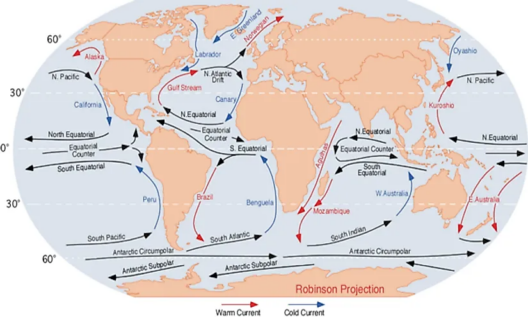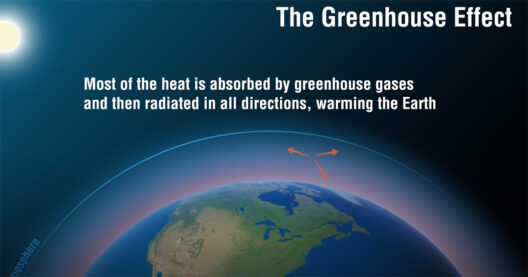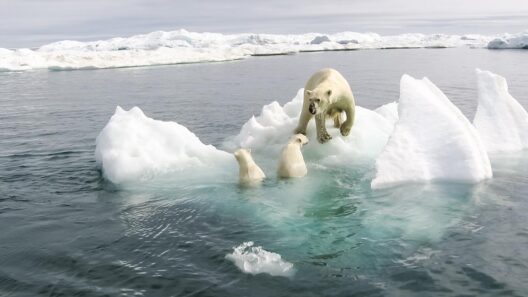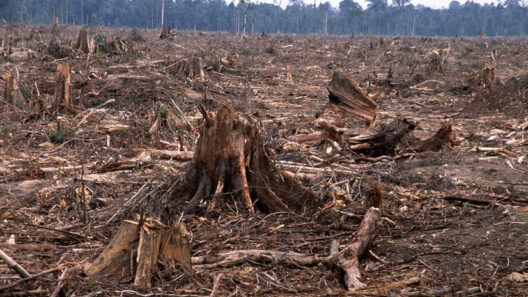Global warming is undeniably one of the most pressing environmental issues of our time, with far-reaching implications for the planet, ecosystems, and human societies. This phenomenon is not only a climatic anomaly but the catalyst for a cascade of consequences that extend across the globe. Understanding these repercussions is essential to mitigate the adverse effects and promote sustainable practices. The ripple effect of global warming manifests in numerous ways, from rising sea levels to altered weather patterns, and it is critical to unpack each element to grasp the full breadth of its impact.
Consequences of Rising Temperatures
At the forefront of global warming is the alarming rise in average temperatures. The Intergovernmental Panel on Climate Change (IPCC) has recorded a steady increase in temperatures, primarily caused by anthropogenic greenhouse gas emissions. The implications of this trend are profound and multifaceted.
Firstly, extreme weather events are becoming increasingly prevalent. Regions once known for their temperate climates are experiencing unforeseen droughts, floods, and hurricanes. These climatic extremes not only disrupt local agriculture but also significantly hinder food security globally. Crop failures lead to increased prices and scarcity, disproportionately affecting lower-income populations who may already be vulnerable to food insecurity.
Furthermore, rising temperatures exacerbate the melting of polar ice caps and glaciers. This phenomenon contributes directly to rising sea levels, which threaten coastal communities. Cities such as Miami, New York, and New Orleans face the looming specter of submersion, necessitating costly adaptations and preventive measures. Failure to address these threats could lead to an unprecedented migration crisis, as millions of individuals are compelled to flee their homes, igniting sociopolitical tensions.
Changing Ecosystems and Biodiversity
The ripple effect of global warming extends far beyond human experiences; it touches ecosystems and wildlife globally. As temperatures shift, habitats are altered, leading to a reconfiguration of ecosystems. Species that cannot adapt swiftly to changing conditions face the risk of extinction. Coral reefs, often referred to as the “rainforests of the sea,” are particularly vulnerable. Ocean warming and acidification severely compromise coral health, resulting in widespread bleaching and the erosion of biodiversity.
The consequences extend upstream as well. Alterations in rain patterns affect freshwater sources, disrupting the delicate balance necessary for diverse flora and fauna to thrive. Aquatic ecosystems grapple with diminishing stocks of fish, which have cascading impacts on fishing industries and local economies. The repercussions compound, sparking a vicious cycle of ecological degradation and socioeconomic instability.
Human Health Implications
Global warming does not solely impact physical environments. Human health is also at significant risk as temperatures continue to rise. Heatwaves, a direct consequence of increased global temperatures, can lead to heat-related illnesses and even mortality, particularly among the elderly and those with pre-existing health conditions.
Moreover, the spread of vector-borne diseases, such as malaria and dengue fever, is increasingly linked to climate variations. As temperatures rise, the geographical range of disease-carrying mosquitoes expands, intensifying public health challenges globally. Healthcare systems already grappling with limited resources face the daunting task of managing outbreaks exacerbated by climate change.
Air quality is another casualty of global warming. Elevated temperatures can worsen air pollution levels, posing additional health risks. Individuals with respiratory conditions, such as asthma, may find their daily lives increasingly compromised as poor air quality fosters a rise in hospital admissions and healthcare costs. The economic burden of these health implications cannot be overstated, as the combination of healthcare expenses and decreased workforce productivity creates a substantial fiscal strain on societies.
Socioeconomic and Political Ramifications
The socioeconomic ramifications of global warming are vast and varied. Increased frequency of natural disasters demands heightened preparation efforts and disaster relief funding, diverting resources away from essential services such as education and infrastructure development. Communities already struggling with poverty and inequality are often the hardest hit, widening the chasm of disparity.
Furthermore, the geopolitical landscape is shifting in response to climate change. As regions become uninhabitable due to extreme weather or rising sea levels, we may witness heightened conflict over dwindling resources, such as freshwater and arable land. This reality poses a significant migration challenge, as climate refugees may lead to destabilization in various regions, prompting governmental responses that focus more on national security than collective climate action.
Fostering Change: The Path Forward
Understanding the ripple effect of global warming is integral to fostering change. Awareness is the first step toward more significant action. Policymakers, businesses, and individuals must collaborate to address the challenges posed by climate change. Investing in renewable energy, promoting sustainable agricultural practices, and enhancing urban resilience are vital components of an effective climate strategy.
Moreover, amplifying education and outreach about the interconnectedness of climate change and its effects can empower communities. Grassroots movements have been effective in mobilizing support for environmental initiatives, highlighting the importance of collective responsibility in addressing global warming.
In conclusion, the ripple effect of global warming is complex and multifaceted, affecting ecosystems, human health, and socioeconomic structures. Understanding these consequences is essential for creating effective mitigation strategies. As the planet faces unprecedented challenges, proactive and informed actions are necessary to foster a sustainable future for all.








